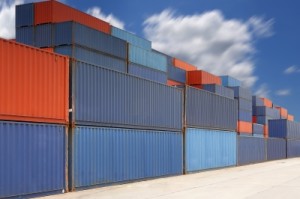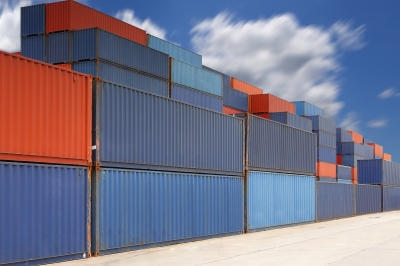 The Manila International Container Terminal (MICT) will permanently close its empty container depot (ECD) effective June 1 — a direct consequence of the Manila daytime truck ban.
The Manila International Container Terminal (MICT) will permanently close its empty container depot (ECD) effective June 1 — a direct consequence of the Manila daytime truck ban.
MICT commercial director Christian Lozano told PortCalls in a text message the company was “forced into making that decision due to the effects of the truck ban.”
He said, “We are rejoining the area with the main terminal (bonded) to give us more space for laden containers,” adding that space will be available on June 1 for approximately 5,000 twenty-foot equivalent units.
Lozano said the additional space will “improve truck moves at MICT but it will affect those carriers and empty returns diverted to other CYs (container yards) which are congested.”
According to the MICT website, the ECD covers 3.3 hectares and has a capacity for 4,836 TEus using eight-tier stacking.
Mixed reaction
Confederation of Truckers Association of the Philippines (CTAP) president Ruperto Bayocot told PortCalls in a text message that the move is “favorable” for truckers as “it will lessen traffic congestion” at the Manila International Container Port.
Bayocot claimed “empty containers contribute 35% of the traffic at the port.”
He said current truck turnaround remains at 72 hours.
For the last three years Bayocot said CTAP has in fact been seeking a stop to acceptance of empty containers by port operators because the organization believes shipping lines should operate their own depots.
Patrick Ronas, president of the Association of International Shipping Lines (AISL), told PortCalls in a text message that the shutdown of the ECD is not a good development, noting that the empties “will have to go somewhere and there is no depot near the port able to take in such volume.”
As it is, all offdock CYs and container freight stations are full to the brim with containers, according to Alexander Ong, president of the Association of Off-Dock CFS Operators of the Philippines, in an earlier interview.
Ronas cited two privately run depots outside Manila that shipping lines can use to store their empties once MICT closes its ECD.
One is the recently opened depot in Plaridel, Bulacan run by Interpacific Highway Transport Corp. The facility has a 1,300-TEU capacity which can be expanded to 2,800 TEUs, depending on shipping lines’ requirements.
Another depot is located in Kawit, Cavite, which will be operational starting next week. Ronas said the depot is run by IRS Eastern, Inc and can accommodate 2,400-2,500 TEUs, with plans to add another 1,300 TEU to its capacity.
Arnel Gamboa, president of the Supply Chain Management Association of the Philippines, said the ECD closure will mean an even longer truck turnaround.
“Empties will have limited space now,” Gamboa pointed out.
Asked if it’s the responsibility of shipping lines to provide space for empty containers, he replied, “they have to provide alternatives for the space needed.”
The truck ban imposed by the city of Manila in late February has caused massive container congestion at the ports, which up to now some say has not eased despite the recent eight-day suspension of the truck ban.
Some international lines have had to skip Manila in recent weeks because there was just no space to deposit their cargoes. Other liners have transported their shipments to domestic outports for later transhipment to Manila.— Roumina Pablo





